Siren Marine cellular boat monitoring long test, reliable & powerful
Boat theft is very rare in Maine, but on a recent Saturday night someone apparently “borrowed” a big twin outboard off a local dock for a “joy ride” during which something was hit hard enough to hole the topsides, and then they put the boat back on the dock and vanished! To my knowledge the mystery remains unsolved, but it sure jogged my memory about the Set feature on the Siren Marine cellular monitoring system I’ve been testing for over two years. The partial phone screen above shows what happened when Gizmo moved more than about 15 meters several days after I texted the “SET” command to the Siren. First I was notified that she’d TRANSGRESsed the geofence set up by the SET command and then the Siren started texting me every five minutes with GAT (Geofence Automatic Time-based) reports that included course, speed and a lat/long link to Google Maps. I could have guided the Maine Marine Patrol to the transgressor pretty quickly, if the “villain” hadn’t been myself…
Click on the screen above for more detail on the same geofence test, including an inset of a Google Map link (showing Gizmo near a granite breakwater testing the now functioning EchoPilot FLS). Here the messages are in email form because one of the four phone numbers the Siren can text is set to be my Google Voice account, which can pass along texts as emails. By my count the Siren delivered almost every 5 minutes a GAT report until I disarmed it with the NOSET command, and that’s been a key finding in my long test. The Siren system is wonderfully reliable, even in the very odd texting situation found here in Camden. Verizon, AT&T, T-Mobile and other cell phones work pretty well here in all regards, but devices that use GSM SMS messaging often do not. I couldn’t get the Maretron SMS100 to work here, though I tried both AT&T and T-Mobile SIM cards, and I couldn’t get a C-Pod AT&T-based system to work here either. In fact, the Siren had trouble at first, too, but as I described in my first Siren review, founder Dan Harper dug into the problem and solved it with a service plan that’s worked fine just about every day Gizmo has been in Camden or anywhere else during the last two years.
I just got the text above and hence know that Gizmo’s solar panels are working well today and the refrigerator temperature (where I installed the Sprint’s included probe) is just where I’d expect when no one has been on board using it. I left this running all winter even when the boat was hauled, because it turned out that the panels could keep the batteries up even under white shrink wrap, except for about one dreary dark week around Christmas when I felt obliged to run the shore power cord, thanks to Siren monitoring. Recently, I changed the reporting to twice a day, about midnight and noon, so I can also see the battery bank level at rest with no solar input. The number of messages is not a concern because these days Siren’s plan is unlimited to all four possible phone numbers (for $180 a year if paid that way).
So I remain impressed with the Siren system, and it continues to eliminate some anxiety from owning a beloved boat (an anxiety you may be in denial about until the boat starts texting you “all is well” messages). On the other hand, I’ve been lazy about trying other Siren features and so last week I fooled around with bilge level and entry alarms and even a relay. It was no surprise that everything worked well (when I had the right sensor), and it was good to see that Siren’s install documentation has gotten truly refined. I still hold out hope for a monitoring system that integrates my boat’s existing NMEA 2000 sensors — and plan to try the Maretron SMS100 again once I get out of Camden — but must admit that the Garmin GDL 40 that I once imagined as evolving into a great multi-purpose N2K cellular link isn’t even offered anymore..
I am disappointed that Siren hasn’t yet released the Android app that would make texting commands to the device as easy as it is for someone with an iPhone, but I note that they have gathered an attractive stable of sensors and relays that are proven to work with their system. They’re also willing to help customers design a particular boat’s system and can even create custom commands, as illustrated below. The diagram and spreadsheet forwarded by Dan Harper show a system where either a motion or a snap sensor can fire off a horn as well as text the owner, among other features like keeping an eye on shore power. There’s something to be said for a marine electronics company that does one thing well (even if it goes against my “glass bridge” vision of the future).
Siren Marine only covers U.S. waters, but are they the best cellular monitoring choice given that limitation? I believe that GOST offers remarkable security systems for big boats and also have deep experience outfoxing the professional thieves who lurk around south Florida and the Caribbean. But who besides Siren is offering security and system monitoring to smaller coastal boats like mine? Please share your thoughts. Also, if you are interested in a Siren system, there’s now a 15% hardware discount — “Pixie or Sprite and any accessories” — if you enter the code “PANBO SUMMER” and also purchase a service plan. Thanks, Dan!


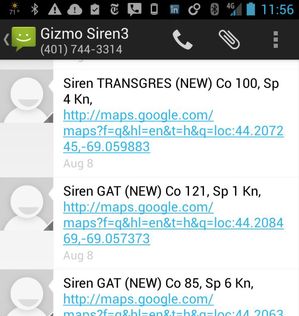
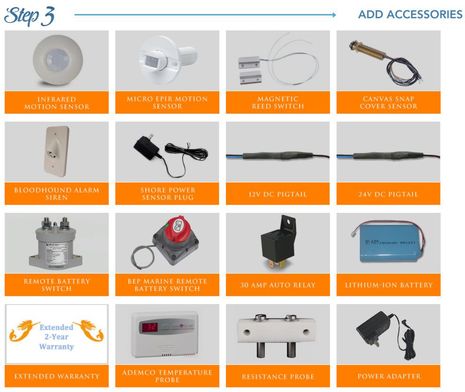
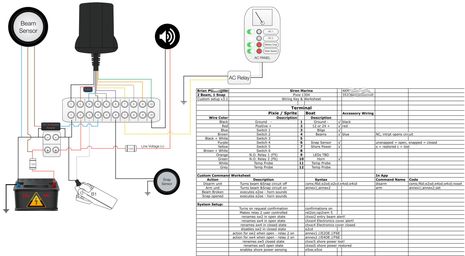
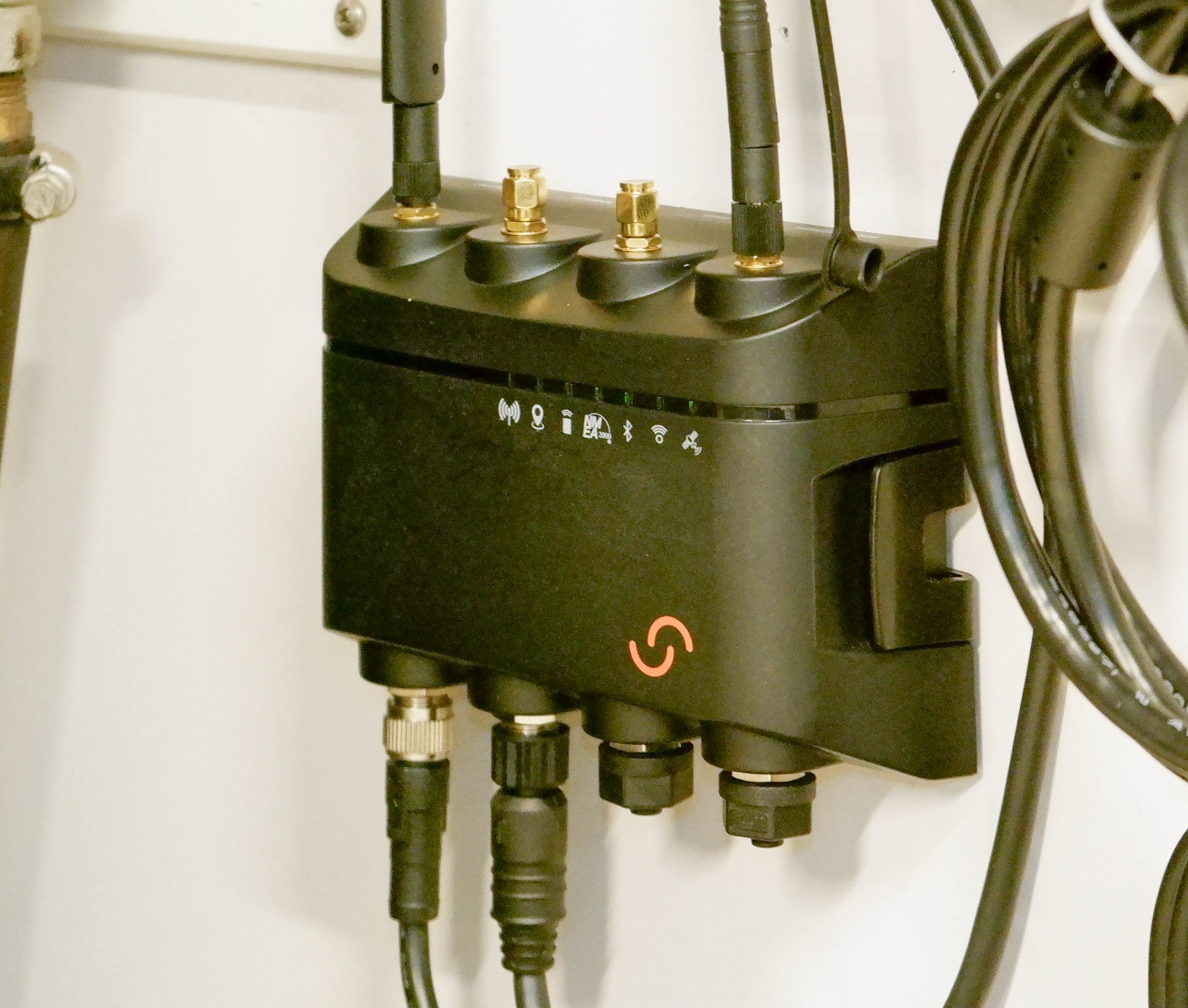
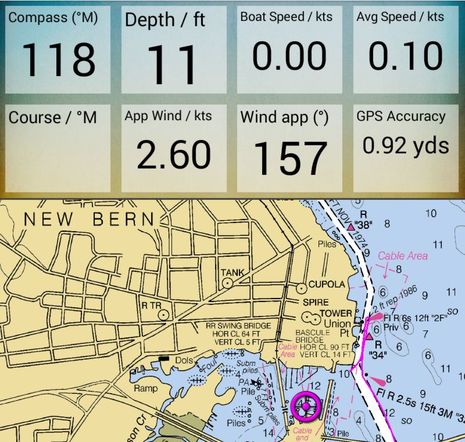
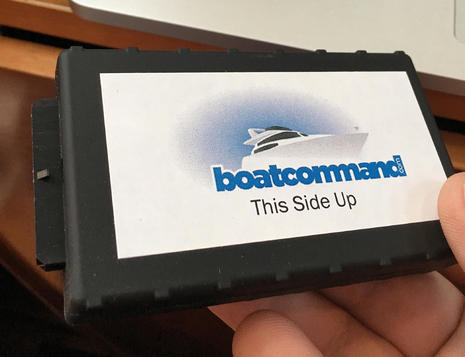
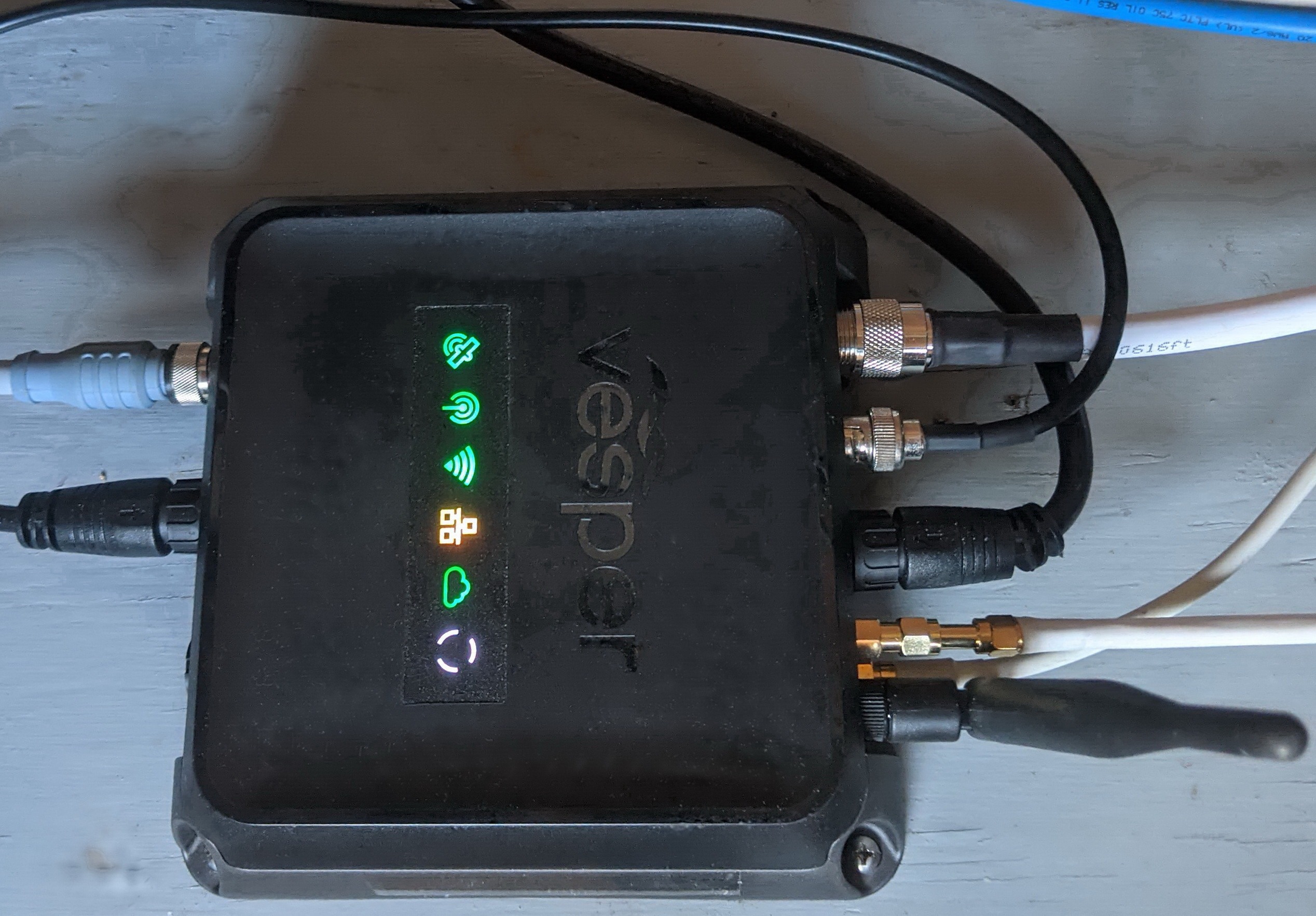







Ben — Your system sends you temperature readings from a remote probe in your refrigerator? How does that work? The installation diagram only shows “open/closed” inputs. I assume you would need to read resistance to get temperature.
Hi Quitsa. The (slightly) more expensive and more versatile Sprite model I’m testing has a “9′ temperature probe for ‘spot’ temperature. -22 F (-30 C) to 230 F (110 C)”. I don’t see it pictured anywhere but it’s in the tech spec PDF.
No programming is required to use the temp sensor. An “INFO” command returns the Sprite battery status, boat source voltage, and temp information I quoted above. The highest and lowest temp records are cumulative until I issue a “TEMPR” reset command. I can also set up high and low temp alerts, set a custom delay time to avoid false alerts, and give the alert a name like “Frig Fail!”
Truly professional theft rings (Florida, not Maine) routinely use both GPS and cell-phone blocking devices, which are available on the Internet at surprisingly low prices, and they do work.
Even a well-concealed anti-theft device with battery backup will be defeated by such jammers. The thieves keep the blockers running even while stripping your stolen boat in their warehouse, before finally abandoning the empty hull in a Walmart parking lot, outside of camera range.
Theft is a minor consideration for those of us fortunate to keep our boats in areas with little crime. For me, the value of the Siren system is being alerted to events such as an interruption in shore power that would shut down my refrigerator or water in the bilge. Over the winter, the temperature monitoring would also be a great source of protection in case my engine block heaters were not operating properly and it got below freezing.
I used to keep my boat on a mooring and once had to use another mooring temporarily. The pendant was rotted and parted, casting my boat adrift. The geofence function would have alerted me immediately. As it happened, I was extremely lucky because my boat drifted over to shore and ran gently aground in the only 20 foot section of shore that did not have rocks. My neighbor was driving by a few hours later and called me. The Siren system would be terrific for anyone on a mooring.
Gotta wonder if some boats don’t have a mind of their own. Here’s a “lucky” story like yours that just happened here Wed. night:
http://www.penbaypilot.com/article/harbormaster-act-god-kept-loose-sailboat-causing-damage-camden-harbor/38961
Gizmo was one of many boats in between the J-24’s mooring and the patch of muddy shore she found, but I haven’t noticed any dark yellow paint yet
That story certainly tops mine. Looking at the photo I think it would be hard to get in there steering under power without hitting something. My boat only went a couple of hundred yards in a very sheltered area with just a couple of other boats nearby, none of which were closer to shore. That J/24 missed dozens of boats and the rocks and pilings! The owner should head straight for Las Vegas.
I installed the Pixie in my boat and have been pleased with it. It does not have an external temperature probe and is advertised as measureing ambient temperature. The reported temperature is actually the temp inside the unit and is 15 degrees or so higher than actual ambient. This is due to heat generated by the backup battery charger, cellular radio, and other internal electronics inside the Pixie. If you want accurate temperature measurements get the Sprite.
Siren Marine support has generally been very good, the installation manual needs an update so I had a few questions which were quickly answered. I found the installation to be easy (but note that I am an EE). I am currently monitoring shore power and high bilge level in addition to the house battery voltage and position (Geo Fence) capabilities. I used a bilge float switch from Borel manufacturing which is a very reliable magenetic reed type of switch.
If you have support questions it is probably best to email Siren, I have had hit or miss results using the web support form.
There is a capability to alert for excessive bilge pump run time which I have not connected yet. I would really like to see it have a bilge pump cycle counter and the ability to alert if the number of cycles exceed a threshold for a time period. A slowly growing leak will not result in excessive run time but will cause the pump to cycle more frequently, advance warning of this could be valuable. This should be possible with a firmware update.
Howard
Ben,
Always great reading your site.
This article on monitoring got me thinking. I decided to make my own device that texts me temperature and shore power status. I made it from consumer-available parts for about $100.
I wrote a blog post about it, in case you or others want to check out the details.
https://sailingaustin.wordpress.com/2015/01/17/my-boat-is-calling/
Cheers,
Steve
Austin, TX
https://sailingaustin.wordpress.com/
I did my installation last year. Originally the Pixie but they let me swap it for the Siren so I could have the more accurate temperature reading from the external probe.
I have intrusion sensed by both a sensor on the companionway hatch and a dual zone motion/IR sensor that cover the bridge deck area.
The system monitors the bilge pump and will text if it runs for more than 30 seconds (time can be set). It sends both initial text and a second one when the pump stops.
I have a separate float switch higher in the bilge and that is also monitored, with a “high bilge” text sent if the water level rises to that level.
An A/C sensor will cause the system to text on loss, and restoration, of shore power.
I used the two outputs as well. One is tied to the intrusion sensor and, via relays, power power to both a strobe/siren at the helm area and the cockpit flood lights. The second output allows me to power on/off the cockpit flood lights remotely.
I am also disappointed in the lack of an Android app, even though the recent newsletter announced it for this month. I do look forward to it, and expect it will be of the same high quality as the rest of Siren a Marine products and service.